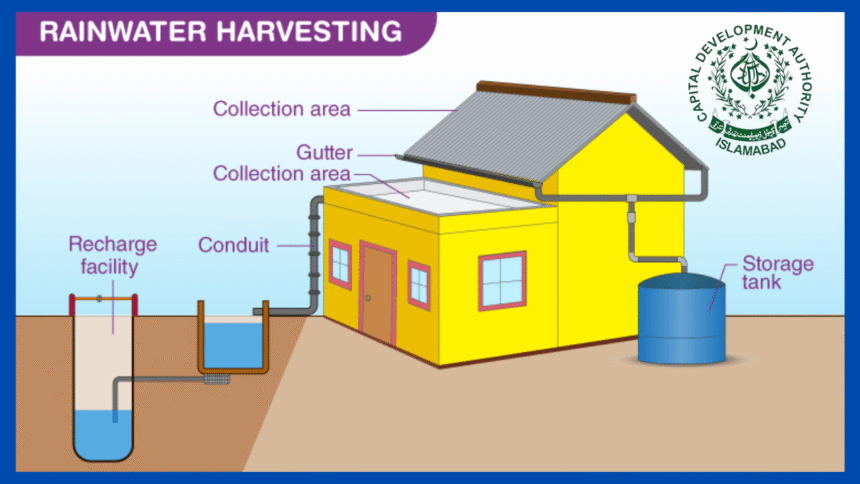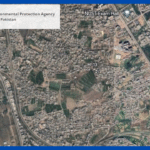Islamabad: The Capital Development Authority (CDA) has made a big step toward more Environmentally friendly methods of water management by mandating the installation of recharge wells for the purpose of collecting rainwater in all residential buildings.
CDA’s strong commitment to ensuring that this plan is fully implemented is shown in the organization’s official approval of the proposal. During the board meeting that took place in March,
Sewage and Industrial Waste into the Sea and Coastal Areas of Karachi, Pakistan
the decision that was made to compel the installation of recharge wells for Rainwater harvesting in every housing unit was thoroughly examined, and the participants gave the decision a great deal of praise.
Globally, 2.1 billion people lack access to clean water to drink. PCRWR
They underlined how important it was for each home to have its own rainwater collection tanks as well as its own tiny well in order to replenish the groundwater.
Efforts to Tackle Environmental Damage Caused by Illegal Housing Societies Discussed by Standing Committee
As a consequence of this, no construction map will be accepted if it does not include both a well and a tank for the purpose of water recharge. The water management arm of the CDA came up with the idea for the project, which was subsequently brought before the building control division of the CDA.
Controversy Over Dumping of Islamabad’s Waste at Losar in Rawalpindi
By deploying recharge wells, the primary goal of this effort is to battle the annual depletion rate of at least four feet in the groundwater table. This is the primary objective behind this initiative.
In point of fact, the CDA has already installed seventy underground wells in a variety of sites, some of which are public parks. These wells have been shown to be successful in restocking the subsurface water table.
Because the present water demand in Islamabad has reached roughly 200 million gallons per day (mg/d), yet the CDA can only deliver 90 mg/d to meet the demands of the city’s people, the necessity for sustainable water management has become even more important.
According to the results of the census that was conducted in 2017, the population of Islamabad has surpassed 2 million, which is about 2.5 times greater than the figure that was reported in 1998.
An official was quoted as saying that the necessary installation of recharge wells in residential properties will not only help to replace the groundwater that has been depleted but will also contribute to the efficient control of urban flooding in the city.











